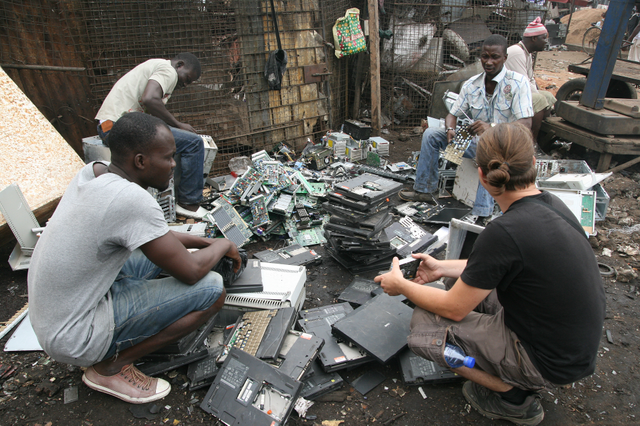The Wasting Economy

The world where nothing is as expensive as it is worthless
It often feels that we do not get what is collectively optimal, or even individually optimal, but often what effectively the minimum required product that the consumer is willing to put up with. A product feels as though it was designed not with its actual use case in mind, but how well it can sell. It likely resembles those who own the company - appealing on a visual skin deep level but repugnant in its guts.
Such a problem is visually apparent for any common item you might find at a store. For all the praise free marketeers give to the smartphone, it is an obvious case of this. The modern cell phone is garbage.
It is literally a piece of disposable garbage. You can throw it right in the trash, because despite the sheer expense of the device it is clearly not meant to last. It is by default thin, fragile, and weak. We have entire companies dedicated to fixing a problem a mobile phone – which should be expected to be subject some level of abuse due from accidental dropping, or other incident – probably shouldn't have in the first place. Its casings are solid, difficult to service molds that make it impossible to repair common issues such as a battery nearing the end of its lifecycle. The software and operating system is similarly locked down, also incentivizing you to throw away your old phone and seek an upgrade. This system is very profitable for the manufacturer - but is so spectacularly wasteful and does not give much advantage to the consumer who has no reasonable means of repairing, upgrading, or reusing/recycling/cannibalizing an otherwise perfectly good piece of tech once it begins to reach obsolescence.
And we see this destructive consumption anti-pattern everywhere, not just in modern phones, but in modern cars (with proprietary fasteners that force you to see a dealer to service your car), appliances (everything from that toaster oven to a laundry machine), and printers. And the sheer cheapness of some of these pieces of garbage make it quite enticing on the consumer level simply to blow through many low-priced quickly breaking things evaluated on a month-to-month cost basis rather than take the single large debit plunge for a higher quality, self-maintainable device (if you could even find such a thing for whatever particular application you are thinking of). In a sense, it feels like a perversion of a lease, where most of the overhead costs plus maintenance and disposal is offloaded to the trash company.
While this wasting economy is a short term boon it's not a stable long term solution to anything. Not only are we dumping away tons of incredibly useful and often precious material, we are wasting a ton of energy unnecessarily manufacturing lots of things which shouldn't be needed. We are offloading the real costs of doing labor as well as the costs of disposing dangerous trash into developing countries. These costs can't be offloaded forever, and will come with a human cost. While it is simpler to design and have cheaper things, we need to be more sensible and forward thinking in our choices from the top of the chain to the bottom because while it seems to be a choice of no consequence, things add up.